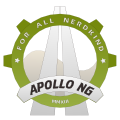Differences
This shows you the differences between two versions of the page.
| Both sides previous revisionPrevious revisionNext revision | Previous revision | ||
| lab:dspace [2013/06/07 15:07] – [DSpace] chrono | lab:dspace [2016/05/28 11:07] (current) – [Use Cases] chrono | ||
|---|---|---|---|
| Line 7: | Line 7: | ||
| The internet has enabled us to share information in ways that were never before available to mankind. On the web, we created websites for specific topics, to have a place where we could share what we know about the world around us. But you need to know where to look for and surf through different sites to get all relevant information. | The internet has enabled us to share information in ways that were never before available to mankind. On the web, we created websites for specific topics, to have a place where we could share what we know about the world around us. But you need to know where to look for and surf through different sites to get all relevant information. | ||
| - | With the help of 1000s of contributors, | + | With the help of 1000s of contributors, |
| Instead of putting up competing websites, which each only hold a part of the information other people have collected (users), it seems much more efficient to store and manage information with relevance to locality (and there are many, when you really start to think about it) in a different manner: | Instead of putting up competing websites, which each only hold a part of the information other people have collected (users), it seems much more efficient to store and manage information with relevance to locality (and there are many, when you really start to think about it) in a different manner: | ||
| Line 20: | Line 20: | ||
| </ | </ | ||
| - | In technical terms, DSpace is a toolkit which provides its own free (open-source and free to access) map-tile servers for basemaps, a distributed/ | + | <WRAP round info> |
| + | | ||
| + | </ | ||
| + | |||
| + | In technical terms, DSpace is a toolkit which provides its own free (open-source and free to access) map-tile servers for basemaps, a distributed/ | ||
| This data is organized and structured in Overlays, which can be | This data is organized and structured in Overlays, which can be | ||
| Line 40: | Line 44: | ||
| You realize, that something on the basemap isn't reflected by reality, so you open the OSM-Feedback Overlay and the client get's new features, which enable you to add/change or delete elements of the // | You realize, that something on the basemap isn't reflected by reality, so you open the OSM-Feedback Overlay and the client get's new features, which enable you to add/change or delete elements of the // | ||
| - | This change will not occur in realtime, because the data is not changed locally but submitted back upstream to the people dedicated to mapping the world: [[http:// | + | This change will not occur in real time, because the data is not changed locally but submitted back upstream to the people dedicated to mapping the world: [[http:// |
| Line 81: | Line 84: | ||
| ===== Use Cases ===== | ===== Use Cases ===== | ||
| - | * Hitchhiking | + | * ERM => Emergency Response Management via local autonomous WiFi (Freifunk) Nodes |
| - | * Dumpster Diving => More permanent data (http:// | + | * First Responder Organization |
| + | * Victim Communication | ||
| * Food Mapping/ | * Food Mapping/ | ||
| - | * Organizing Events => Temporary data (i.e. have public congress/ | + | |
| + | * Urban Management => Where are open living spaces, jobs or food sources | ||
| + | * Fleet Management | ||
| + | * Decentralized P2P parcel service | ||
| + | | ||
| * Open Network Access => Mapping Access Points (http:// | * Open Network Access => Mapping Access Points (http:// | ||
| * Realtime Semantic Mapping => Heat mapping twitter hashtags (i.e. heatmap #earthquake to find current EQ reports and positions) | * Realtime Semantic Mapping => Heat mapping twitter hashtags (i.e. heatmap #earthquake to find current EQ reports and positions) | ||
| Line 90: | Line 98: | ||
| * POI's for a local group (i.e. MuCCC) => More permanent data | * POI's for a local group (i.e. MuCCC) => More permanent data | ||
| * Drone Management => Localization and interactive Mission/ | * Drone Management => Localization and interactive Mission/ | ||
| - | * ERM => Emergency Response Management (First Responder Setup) | ||
| * Entertainment => Geocaching, AR-MMORPGs, AR-MMO-Strategy-Games | * Entertainment => Geocaching, AR-MMORPGs, AR-MMO-Strategy-Games | ||
| - | * Realtime Warnings => Road Speed controls, public transportation ticket controls | ||
| - | * Urban Management => Where are open living spaces, jobs or food sources | ||
| - | * Fleet Managemen | ||
| * ADS-B Airplane Mapping Overlay (just a few RTL-SDR stations globally) | * ADS-B Airplane Mapping Overlay (just a few RTL-SDR stations globally) | ||
| + | * Hitchhiking => Combo of permanent/ | ||
| Line 146: | Line 151: | ||
| https:// | https:// | ||
| + | |||
| + | ==== External Links ==== | ||
| + | |||
| + | https:// | ||
| {{tag> | {{tag> | ||
| {{keywords> | {{keywords> | ||
Trace:
